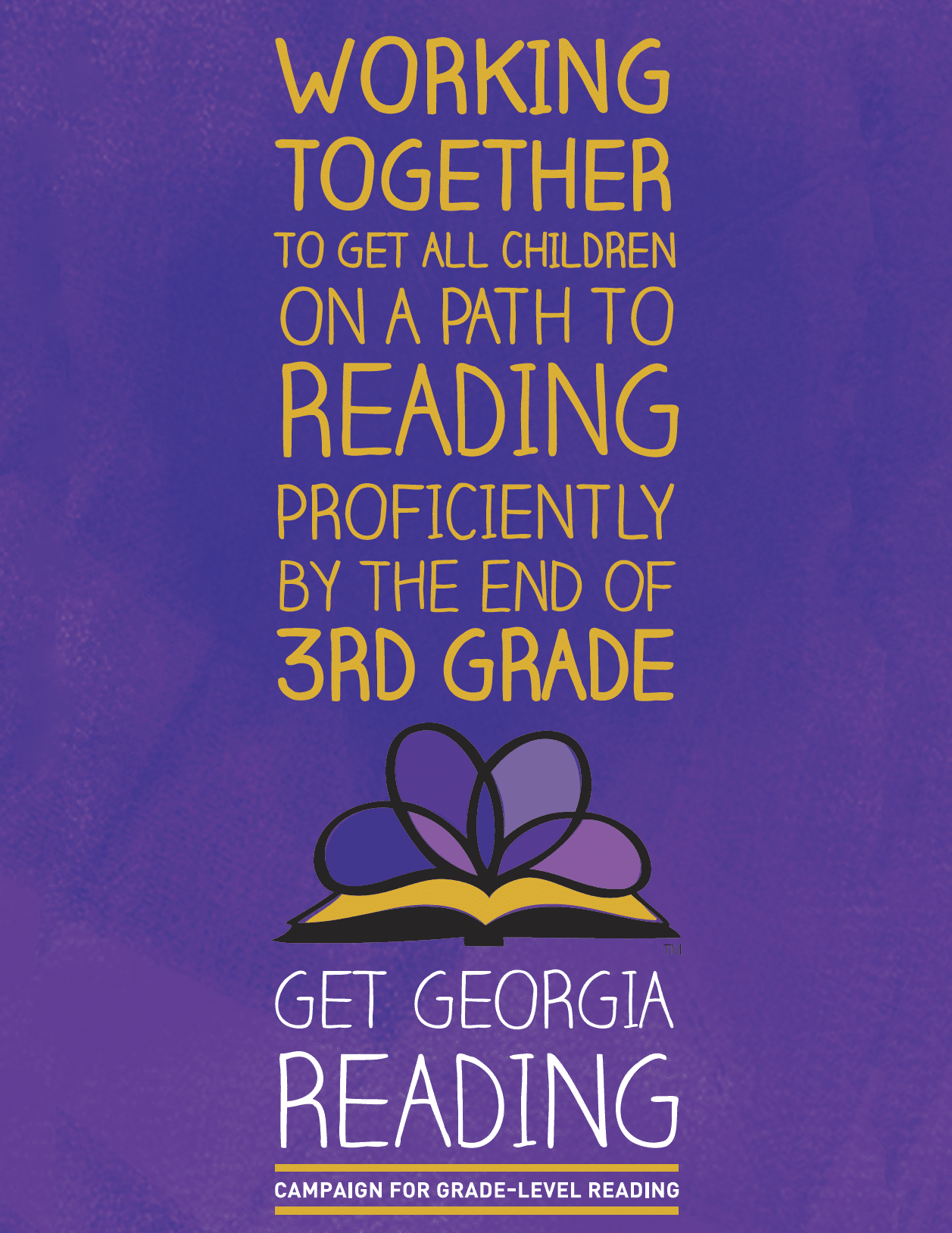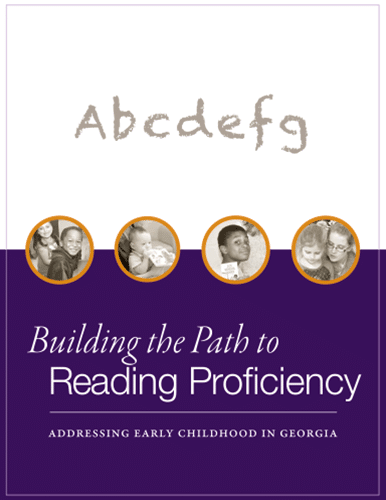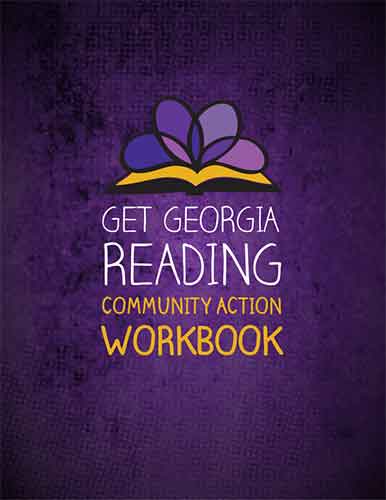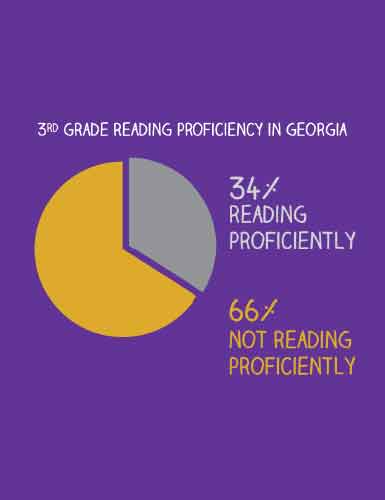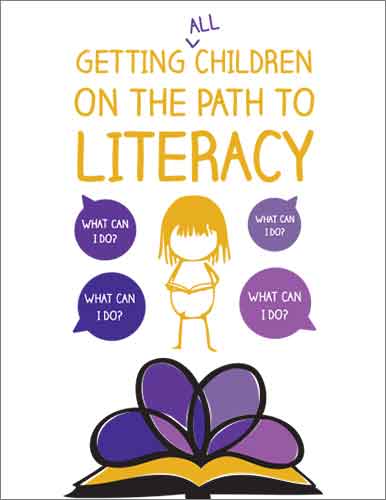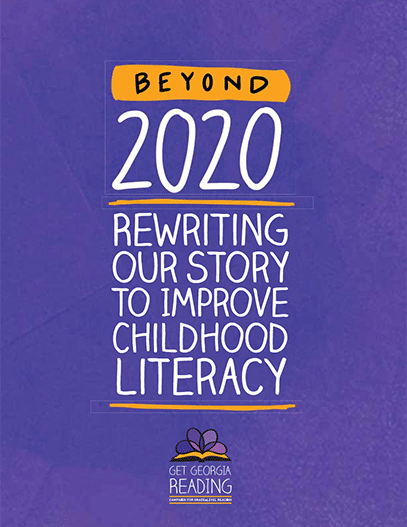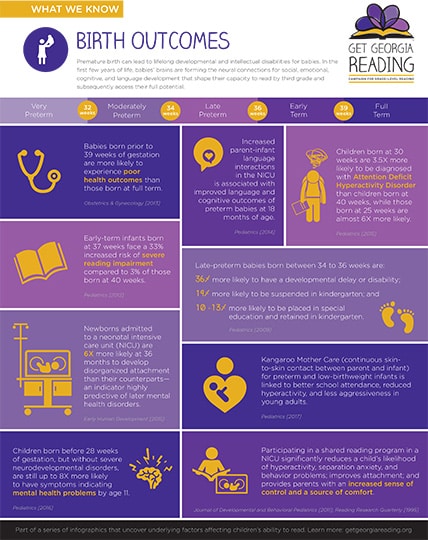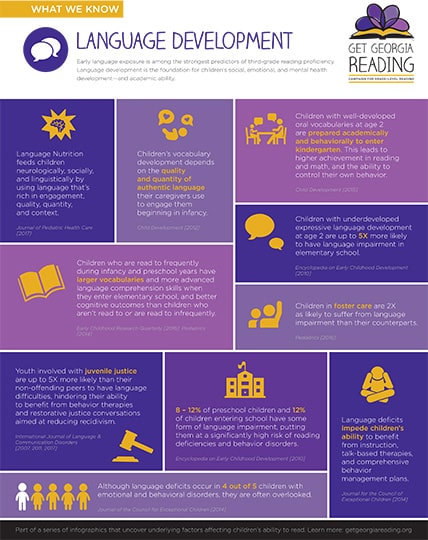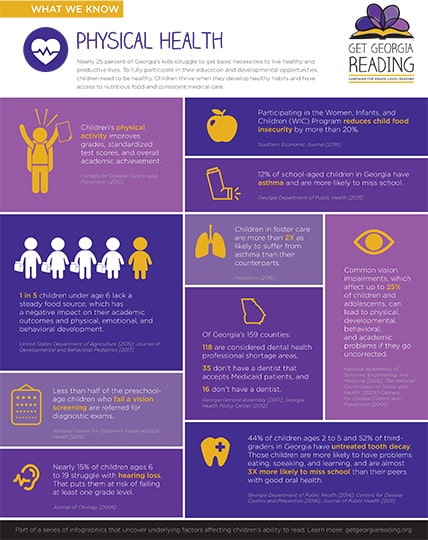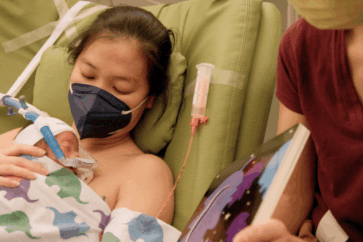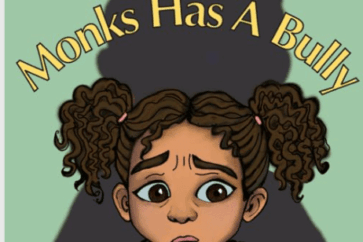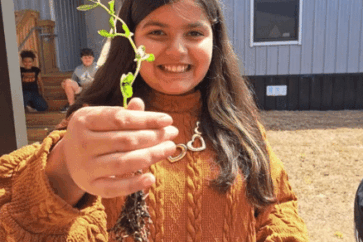There are more than 1.3 million children under the age of 9 currently living in Georgia. Get Georgia Reading has already engaged public, private, and community partners committed to ensuring all children stay on track to achieve reading proficiency by the end of third grade, but we know we can’t reach all children in the state unless communities like yours join with us in this effort.
Promoting grade-level reading is not just good for children and families; it’s good for our communities as a whole. Children who read proficiently by the end of third grade are four times more likely to graduate from high school—paving the way to higher education, better opportunities in the workforce, and improved health outcomes.
Get Georgia Reading Campaign communities are defined geographic areas with a focus on children from birth through age 8. These communities use data to identify baseline early childhood conditions, engaging local partners and adopting strategies using our four pillars as a framework for action. Campaign communities commit to reporting progress, sharing stories, and participating in statewide activities.
Campaign Communities are part of the nationwide Campaign for Grade-Level Reading (CGLR) network. Communities have access to CGLR’s Community Learning for Impact and Improvement Platform (CLIP), an online platform that harnesses the collective knowledge, expertise and wisdom of its 350+ network to drive impact and improvement on measures of early school success for low-income children. Georgia communities can also access the robust lineup of online learning opportunities hosted by CGLR as a part of its GLR Learning Tuesdays programming.
Take Action in Your Community
In order to ensure that every child in Georgia becomes a proficient reader by the end of third grade, the Get Georgia Reading Campaign has built a set of tools—including videos, downloadable workbooks and reports, and inspiring stories—for communities to use to learn about the four-pillar framework, to examine community-level data, and to identify new and innovative ways of working together and aligning efforts.
Download these helpful PDFs or contact us to receive printed versions.
Building the Path to Reading Proficiency: A Compendium of Research and Evidence-Based Practices: This compendium provides a useful tool for parents, educators, health professionals, community and business leaders, legislators, and investors to use in their sphere of influence to make a difference for Georgia’s children, families, and communities.
Community Action Workbook: Since 2015, we’ve gathered hundreds of state and community leaders in learning events to deepen their understanding of the research and best practices to get children reading proficiently by the end of third grade. Participants hear from experts across the state about the challenges and opportunities to get Georgia reading. These “lightning talks” illuminate the four-pillar framework and help identify key partners, important stakeholders, community successes, and examples of clear actions necessary to bring the pillars to life. The Community Action Workbook includes links to videos of the lightning talks, coupled with design-thinking exercises that every community can use to energize their own partners and stakeholders to align around key actions that will help all kids be on a path to reading proficiency. Visit our Vimeo channel for a complete library of all lightning talks.
Getting All Children on the Path to Literacy: What Can I Do?: This booklet features inspiring stories, ideas, and tips that parents, educators, health care providers, community and business leaders, legislators, and funders can learn from and act on to apply the four pillars in their daily lives to ensure all children in Georgia become proficient readers by the end of third grade.
Beyond 2020: Rewriting Our Story to Improve Childhood Literacy: This report shares what we’ve learned, our successes, and our challenges—and what we need to do next to ensure that every child in Georgia has access to the services and supports necessary to get on the path to learning to read by third grade.
What We Know & What We Can Do
This series of infographics uncover underlying factors affecting children’s ability to read.
Birth Outcomes: Premature birth can lead to lifelong developmental and intellectual disabilities for babies. In the first few years of life, babies’ brains are forming the neural connections for social, emotional, cognitive, and language development that shape their capacity to read by third grade and subsequently access their full potential.
Physical Health: Nearly 25 percent of Georgia’s kids struggle to get basic necessities to live healthy and productive lives. To fully participate in their education and developmental opportunities, children need to be healthy. Children thrive when they develop healthy habits and have access to nutritious food and consistent medical care.
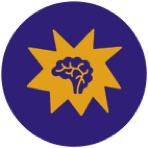
Language Nutrition Resources
- Books for Keeps: Launched in Athens, Georgia in 2009, this program enables children to choose 12 books at the end of the school year to ensure they have access to books during the summer. Since then, it has expanded into new communities with a goal of growing statewide.
- Dolly Parton’s Imagination Library: Local entities can increase access to books for young children by starting a local program. Enroll children ages 0-5 to have books delivered monthly.
- e-READ KIDS: This free collection of ebooks and audio books is for kids in pre K to fourth grade that can be downloaded onto computers, tablets and smartphones. All you need is your library card number and PIN.
- Ferst Readers: With programs currently operating in more than 70 Georgia counties, Ferst Readers delivers a quality, age-specific book and resources to enrolled children every month until age 5.
- 1,000 Books B4 Kindergarten: Public libraries across the state encourage parents to read 1,000 books with their children before the age of 5 through this fun and easy program.
- Pre-K Summer Transition Programming: DECAL’s six-week intensive academic program is for rising kindergarteners that meet specified criteria. The experience is designed to reduce the achievement gap by providing additional family support and resources to targeted high-needs populations.
- Reach Out and Read: Pediatricians and pediatric staff integrate reading into pediatric practices, advise families about the importance of reading with their children and share books that serve as a catalyst for healthy childhood development during routine pediatric checkups. Find a pediatric office near you or find out how to bring this program to your clinical site.
- Talk With Me Baby: Free videos, resources and training tools to build the capacity of large-scale workforces that engage with new and expectant parents integrate Language Nutrition coaching in everyday practice, including nurses, WIC nutritionists, foster parents, and early learning educators. A train-the-trainer toolkit for foster parent training is also available.
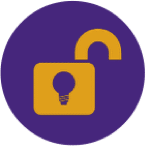
Access to Support & Services
- Attendance Works: This nationwide effort promotes better policy and practice to increase student attendance and reduce chronic absenteeism. Every September, it’s Attendance Awareness Campaign provides schools, community partners and policymakers with tools and resources to promote attendance.
- The Campaign for Grade-Level Reading: Our national partner’s website shares ideas and inspiration from communities across the nation. Watch Ralph Smith, the national Campaign’s managing director, discuss the power of Georgia’s four-pillar framework.
- FoodFinder: Enter your zip code on this website and smartphone app to find food pantries, kitchens and shelters near you.
- Georgia Gateway: Apply for Food Stamp and Medicaid benefits. Download an application.
Go to connectebt.com for Electronic Benefits Transfer (EBT) or call 888-421-3281 for updates. You can also contact the DFCS Customer Contact Center at 877-423-4746 for additional information or to request a paper application. Find your county office. - Georgia Statewide Afterschool Network: GSAN is a public-private collaborative that advances, connects, and supports high-quality afterschool and summer learning programs throughout Georgia.
- Georgia WIC: This health and nutrition program is for children ages 0-5 and women who are pregnant, nursing, or have recently given birth.
- Feeding Georgia, formerly Georgia Food Bank Association:Your community is served by one of Georgia’s seven Feeding America affiliate Food Banks. Find yours here to donate or get help.
- National Summer Learning Association – A national nonprofit focused on investing in summer learning to help close the achievement gap, using research, advocacy, training, and policy to cast a spotlight on summer learning loss and galvanize parents, educators, legislators, and community organizations to embrace summer learning.
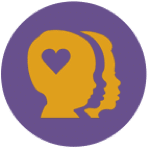
Early Learning Climate Resources
- Chat About Children: The Child and Family Development program provides resources and training for early care and learning professionals and families on topics related to child development and family engagement.
- Georgia’s Social Emotional Early Development Strategies (SEEDS) for Success – An initiative of DECAL to support children’s social, emotional, and behavioral competence, SEEDS provides story time guides with activities aligned to the GELDS that correspond with popular children’s books.
- Georgia Student Health Survey 2.0: The first step to improving school climate is to measure and analyze it with a school climate survey instrument. The GSHS 2.0 identifies safety and health issues that have a negative impact on student achievement and school climate.
- Quality Rated: A systemic approach to assess, improve, and communicate the level of quality in early and school‐age care and education programs. Quality Rated will support your program as you strive to reach higher levels of quality.
- School Climate Star Ratings: Schools that provide a warm, welcoming, and nurturing environment to students and staff tend to have higher attendance rates, better test scores, and higher graduation rates.
- Signals – This series of five free webinars is designed to equip educators with information about what can be missed when focusing on behavior without considering possible underlying factors and the impact of missed indicators on mental health development and social engagement. Learn more about Signals.
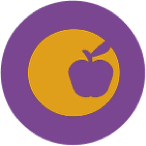
Teacher Preparation & Effectiveness Resources
- Cox Campus – Resources developed by the Atlanta Speech School’s Rollins Center for Language and Literacy. Offers free, online courses for early childhood educators, families, leaders and community members.
- DECAL Scholars – A program for early learning educators to help them gain more education and skills, DECAL Scholars offers educational counseling, incentives, scholarships, and financial awards.
- Eat. Move. Talk! Toolkit: Eat. Move. Talk! Is an integrated healthy eating, physical activity, and language nutrition curriculum for Early Childhood Educators. Download this toolkit of resources and strategies to get started.
- GPB Education: Provides free access to over 300,000 standards-aligned digital learning resources for all grades and subject areas including streaming video, instructional strategies, virtual field trips, teacher resources, and complete lesson plans.
- Growing Fit Toolkit: Growing Fit aims to promote healthy behaviors among children aged 0-5. Download this toolkit for resources to guide early care environments in the development or improvements to policies around nutrition and physical activity.
- Social Emotional Engagement – Knowledge and Skills (SEE-KS) – This professional learning approach helps educators integrate social-emotional engagement practices into lesson plans to ensure all children are forming positive relationships that fuel the motivation for learning. Learn more about Georgia schools using SEE-KS.
How is My Community Doing?
Campaign partners are sharing data illustrating factors affecting children’s ability to read proficiently. See how your community fares on these important indicators.
What’s Happening?
Check out the latest news and stories that affect local communities.
Where Do I Start?
- Check out our Community Locator to see if your community has joined the Campaign and, if not, find out how to bring yours together to get kids reading.
- Use community-level data to engage public and private partners that care about children ages 8 and under in a conversation about what needs to be done.
- Browse through our stories for ideas and inspiration, and then come back to share your own success stories as your local efforts expand and deepen.
Explore More
- Hear more about our four-pillar framework for achieving reading proficiency by third grade.
- Check out relevant data points for monitoring the progress of conditions related to achieving reading proficiency by third grade—and use our data tools.
- Find resources for implementing strategies.

